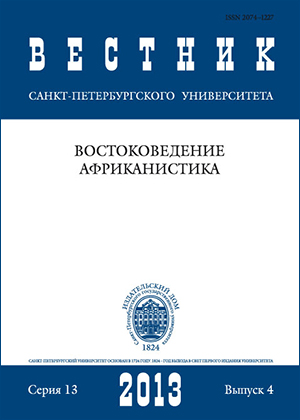Some new novels from Yemen: between revelation and epatage
Abstract
What characterises Arabic literary bestsellers of the recent decade is candor in dealing with subjects, that previously used to be a kind of taboo in Arabic literature: sexual relations, sharp criticism of archaic cultural tradition, corruption and political oppression in the post-colonial Arab world, etc. Many Arab writers aim now at violating taboos by any means, sometimes at the expense of the quality of their writings. From this point of view three Yemeni novels: “The beautiful Jew” (2009) by ‘Ali al-Muqri, “Submissive wives” (2009) by Nadiya al-Kawkabani and “The red manuscript” (2010) by Muhammad al-Gharbi ‘Amran are analyzed in the article. The first one of these novels is an adventure love-story of a young Jew and a Moslem girl, which took place in Yemen in the 17th century. The unrealistic story is obviously intended to shock the reader by religiously inadmissible love-relations between a Jew and a female Moslem. The second novel presents a mosaic of fates of Yemeni women, who suffer in their family lives. Here we find a lot of savage “scandalous” cases that may be attributed exclusively to men’s mental disorders, not restricted to Moslem society, and therefore the author’s vivid intention to reveal negative sides of Moslem cultural tradition seems feigned in a way. The third novel is of epic kind, concentrating mainly on the oppositionist NDF’s struggle against the North Yemeni government in the 1970–80s. The author, though, saturated his work with sexual scenes, which have little relation, if any, to the main course of events. Refs 6.
Keywords:
Yemen, Arabic literature, Arabic prose
Downloads
References
Downloads
Published
How to Cite
Issue
Section
License
Articles of "Vestnik of Saint Petersburg University. Asian and African Studies" are open access distributed under the terms of the License Agreement with Saint Petersburg State University, which permits to the authors unrestricted distribution and self-archiving free of charge.





